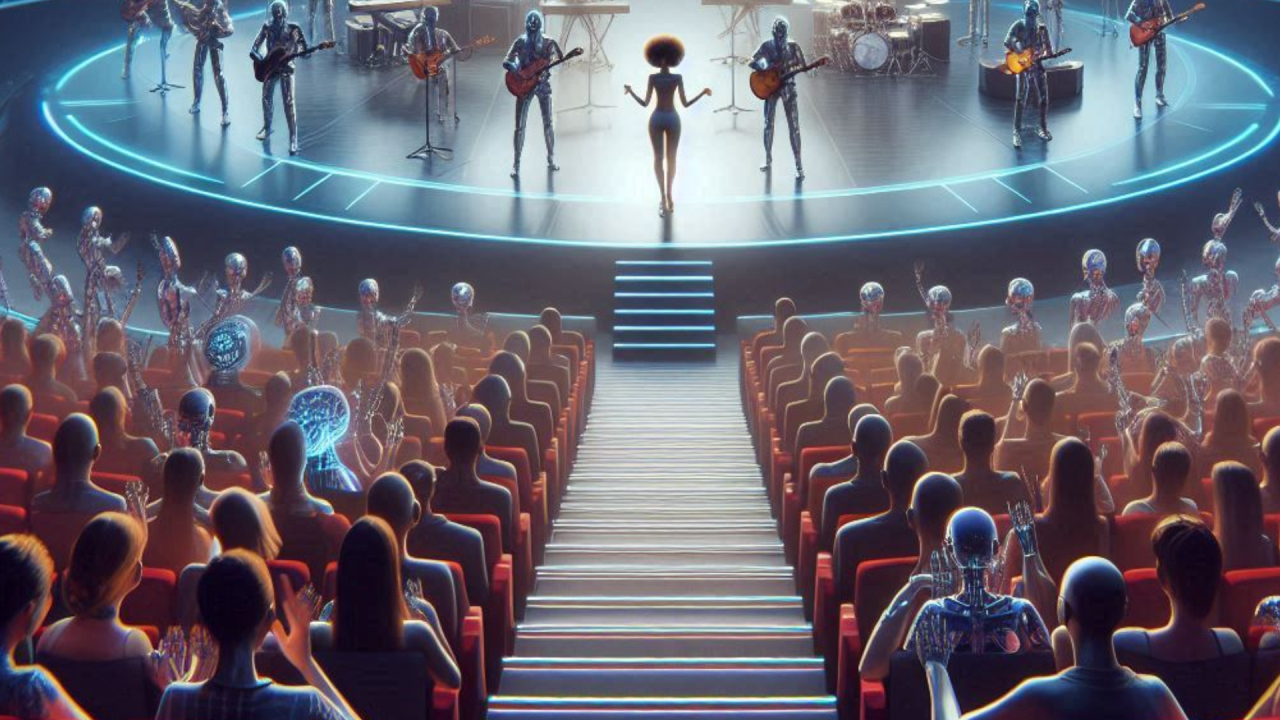AI in music creation


“Music and Artificial Intelligence" — Dall-E
AI in music creation
Last year, I participated in a panel at the SCD Pulsar Fair. The panel was about “Debates and Reflections on the Use of AI in Artistic Creation," and in retrospect, I must admit that I was quite emphatic in stating that music created with artificial intelligence would not be able to surpass that created by humans. Due to reasons like emotion, intention… I don’t know, human things.
Recently, and by chance, I listened to some songs created through an artificial intelligence tool, which made it inevitable for me to try it out myself, and I think I have to say that… [click below and listen].
https://suno.com/song/ffde3b1d-f7aa-4df9-b008-8d1d75995e36
“Brazilian drum and bass track at 175 bpm. The song has bossa nova influences and is about living on the coast, enjoying the beach and having fun with friends.”
The final product that current artificial intelligence is capable of creating—and we’re not even talking about what’s coming in the next three years—can already surpass what a person creates in several aspects. It has details, it’s improvable, it’s perfectible. But I think it provides a tremendous starting point for the initial creation upon which the artist can work, and even… Could it be published as is? I’ve heard music that, if I hadn’t been explicitly told it was created with artificial intelligence, it would be impossible for me to detect that it was made this way.
As a musician, producer, and DJ, I find this topic as fascinating as it is unsettling. Will musicians be relegated to “recreating compositions” made by AI? Will we find a way to validate “human-made” music as something of higher value than that “created by AI”? Perhaps the issue is not with musicians, artists, or other creators in the industry, but with those who consume the final product: the audience. Will the public have the interest and/or motivation to give more importance or priority to human-created music?
If we take as a reference other trends that seek to solve global problems, such as the environment through recycling and “green” products, we can affirm that their adoption has been extremely slow, considering that it’s something of utmost importance and that its global impact is hard to deny. If we guide ourselves by this and other similar examples, how will the transition to a more pro-hominem trend in music play out? Will artists survive long enough to see the light at the end of the tunnel? Will we be buried under a tsunami of self-generated music created in server farms, as if we were victims of a massive landslide of musical sausages?
Despite how exciting this panorama of technological advances is, I’m left with more questions than answers and more worries than certainties. Perhaps in the near future, live concerts and performances will gain more value, until robots arrive there too. Shouldn’t robots be sweeping floors at home while humans handle the act of creation? At what point did we decide that we needed help in the creative process? Personally, I need help with the monotonous and mundane tasks, so I can focus on what I enjoy and (for now) do better than a machine—not the other way around.
Anyway, I can officially say that I retract my earlier view that artificial intelligence won’t flood the internet with an overwhelming amount of music. The challenge for artists now is:
How will they define their value proposition to face this? Have they thought about their position regarding the musical threat posed by AI?